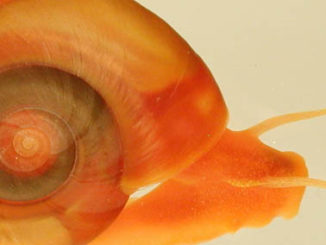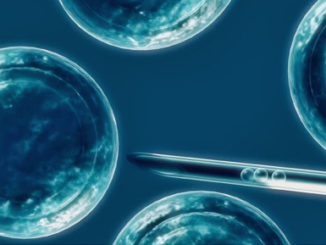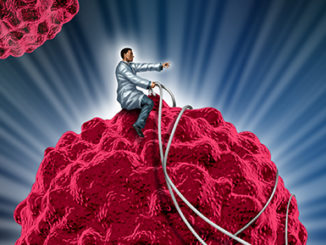Articles that explore the connection between epigenetics and diseases and disorders, including cancer, cardiovascular disease, diabetes, autoimmune disease, and more.
Heart disease has been singled out as the leading cause of death among people with diabetes. It’s estimated that 68 percent of diabetics age 65 or older will die from some form of cardiovascular disease. Coronary atherosclerosis, or hardening of the arteries, is the most prevalent of these diseases, but there is another very common heart condition specific to diabetes that has been getting more attention in recent years. It’s called diabetic cardiomyopathy (DCM) and it’s independent of coronary artery [more…]
Exposure to environmental pollution, such as diesel exhaust or concentrated urban air particles, during pregnancy could increase a child’s risk of developing asthma via epigenetic mechanisms. Recent research in the Journal of Physiology – Lung Cellular and Molecular Physiology suggests that this allergic susceptibility might even be epigenetically passed down for several generations. Asthma forms as a result of the complex interaction between someone’s genes, epigenetic marks, and the environment. Epigenetics, the study of how chemical tags impact the expression [more…]
A certain type of mushroom might epigenetically prevent tumor growth, according to a study published in the Journal of Cancer Research and Treatment. A medicinal mushroom, Phellinus linteus (PL), could come with “magical” anticancer properties. Researchers from New York Medical College found that histone deacetylase (HDAC) inactivation and histone acetylation led to the death of bladder cancer cells. Chemotherapy and immunotherapy often come with severe side effects, and for those suffering from bladder cancer, the use of these therapies is [more…]
A small freshwater parasite burrows into the bare skin of an unsuspecting swimmer and enters their bloodstream. Once inside the blood, it grows into an adult worm, quietly feasting on its victim’s nutrients and breeding for some time, until one day its destruction becomes serious and life-threatening. While this could be the storyline of a bad horror film, it’s tragically the real tale of schistosomiasis – a deadly neglected tropical disease that kills more than 200,000 people each year in [more…]
By adding the right concoction of ingredients, scientists can reprogram your everyday somatic cell into an induced pluripotent stem cell (IPSC) – that is, a cultured cell that has the ability to differentiate into almost any other cell type in response to specific environmental factors, similar to an embryonic stem cell.1 This innovative technology allows the study of the molecular mechanisms of early development and disease, without the ethical restrictions associated with embryonic stem cells. Not surprisingly, the possibility of utilizing induced pluripotent stem cells in the field of regenerative medicine is of important focus to many scientists. In a recent post, we touched on the potential ability of vitamins A [more…]
A recent discovery out of St. Jude’s Children’s Research Hospital finds an epigenetic cause to why T-cells fall ineffective in immune responses to cancer and viral infections. T-cells, a type of cell produced by the thymus gland, are a critical combatant in the human immune system. Their main job is to fight foreign invaders such like viruses or cancers by detecting certain proteins on the surface of the intruder cell. Cancer cells often carry normal proteins which can trick the [more…]
An excess amount of the stress hormone, cortisol, in the body could impact epigenetic processes and boost one’s risk of experiencing psychological issues in the long run, reports a new study in Scientific Reports. People with anxiety, post-traumatic stress, depression and other stress-related disorders could be adjusting chemical tags on their DNA as a result of high cortisol exposure, which may even persist throughout the course of their lives or be passed on to their children. The study assessed individuals [more…]
Marks on a baby’s DNA might be able to predict whether he or she may develop conduct problems later in life, suggests new research published in Development and Psychopathology. Conduct problems — such as lying, stealing, and fighting — fit into a spectrum of behavioral and emotional issues found in youngsters in which basic social rules or the rights of others are violated. These behaviors are known to have a link to genetic factors and environmental influences. Now, there may [more…]
Casticin, a type of flavonoid, could adjust chemical tags on DNA to stave off gastric cancer, a recent study suggests. Found in wormwood and various fruits, including chasteberry and oil from the chaste tree, casticin is able to epigenetically impact the expression of a gene that inhibits stomach cancer. Although additional research and clinical studies are needed, the results hint that consuming a naturally occurring plant compound might fight tumor growth. Gastric cancer, often caused by an infection from H. [more…]
We often think that taking supplements is a good thing – but what if we consume too much? And could doing so negatively affect our children? Researchers from the German Center for Neurodegenerative Diseases (DZNE) found that fathers who consumed an excessive amount of certain supplements could epigenetically harm their offspring, affecting their children’s memory and learning ability. As we know, a mother has profound impact on her children and their development. Epigenetic research has shown that mothers can influence [more…]











